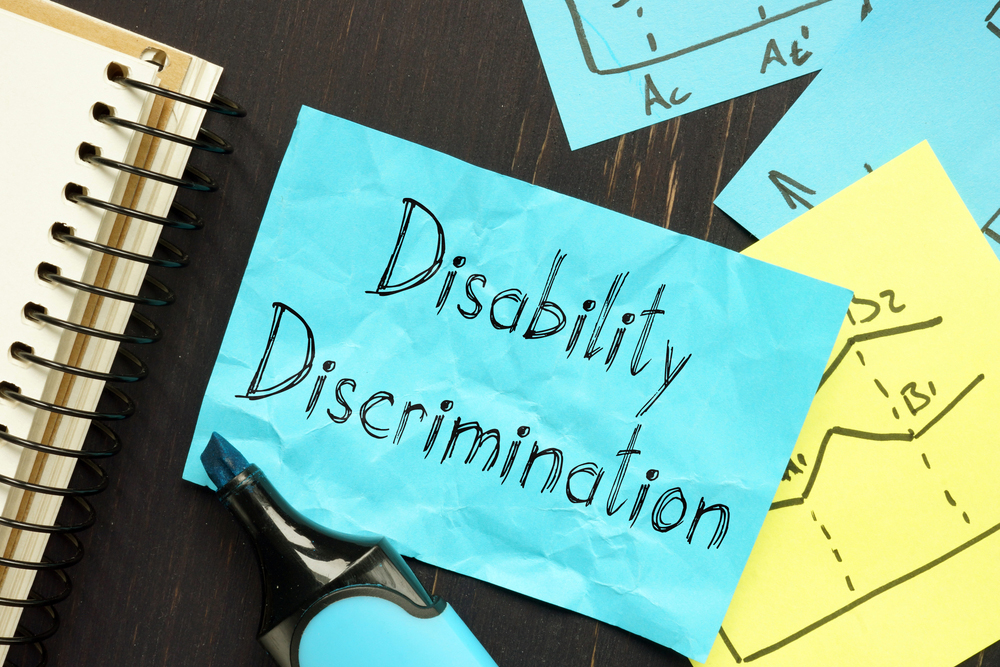One of the unusual features of the Americans with Disabilities Act (ADA) is that it includes a provision prohibiting discrimination “because of the known disability of an individual with whom [the employee] is known to have a relationship or association.” A recent decision by the U.S. 7th Circuit Court of Appeals—which covers Illinois, Indiana, and Wisconsin—examined the scope of the ADA’s associational discrimination prong.

Catalyst
Starting in 2011, Frank Pierri worked as a chemist for Medline Industries, Inc. His first 4 years at Medline went very well, and he earned several promotions and received consistently positive performance evaluations.
In 2015, however, Pierri’s grandfather fell ill with cancer. He asked his supervisor, Rich Tyler, if he could switch to 10-hour shifts, 4 days per week instead of the normal 8-hour shifts, 5 days per week. Tyler agreed and made the change. But 6 months later, the supervisor told Pierri that his work performance had suffered and therefore required him to return to a 5-day/8-hour schedule.
Periodic Table
Pierri wasn’t happy with the return to the 5-day-per-week schedule and insisted he needed at least 1 weekday off to take his grandfather on his weekly trips to the hospital. Tyler offered to let Pierri work Tuesday through Saturday, but the chemist declined the arrangement because he wanted to attend school on Saturdays.
Pierri then contacted HR and learned he could use Family and Medical Leave Act (FMLA) intermittent leave 1 day each week to care for his grandfather. Medline approved him for the leave.
Volatility
After Pierri started working the new schedule with a day off each week, he claimed Tyler began harassing him. According to Pierri, Tyler belittled him in front of coworkers, demanded minutiae about his day-to-day schedule, and refused to assign him research and development work, on which his bonus primarily depended.
Pierri complained several times to Medline’s HR department, but he claimed the harassment continued and began to take a toll on him. The circumstances led him to take a full-time FMLA leave because of stress and anxiety. The leave extended even after his FMLA leave was exhausted, so Pierri went onto Medline’s short-term, and then long-term, disability programs.
Nearly 1 year after the leave began, Medline contacted Pierri’s attorney to find out if the chemist planned to return to work. The company warned that if it didn’t hear from him within a week, he would lose his job. Pierri didn’t respond, and so at the end of 2 weeks, Medline terminated his employment.
Elements
Pierri sued Medline asserting two claims under the ADA. First, he alleged Medline discriminated against him for his association with his ailing grandfather. Second, he claimed Tyler retaliated against him for complaining to HR and filing an Equal Employment Opportunity Commission (EEOC) charge. The district court entered judgment for the employer on both claims before trial, and Pierri appealed.
With respect to the associational claim, the 7th Circuit observed it previously had identified three situations in which an employee may file such a claim:
- An employee’s relative has a disability that is costly to the employer because the relative is covered by the company’s health plan;
- The employer fears the employee may become infected with a disease because one of his associates is infected; or
- The employee is somewhat inattentive at work because his family member has a disability that requires his attention (yet not so inattentive that the employee would need an accommodation).
Although the court said the three situations aren’t meant to be exhaustive, no other situations have arisen in the 7th Circuit in which an ADA associational claim prevailed.
Wrong Formula
Here, Pierri argued the “distraction” situation applied. But the court said there was no evidence in the record to support a distraction theory. In fact, the evidence showed the chemist was a strong performer until he switched to the 4-day schedule as an accommodation. He didn’t point to any evidence he was distracted, Medline regarded him as distracted, or the company took any action against him in retaliation for any real or imagined distraction.
Further, the court observed that even if Pierri could show some type of associational discrimination, he still couldn’t show he suffered any adverse employment action. The bulk of his discrimination claims related to Tyler’s harassment and general rudeness toward him.
But as the court pointed out, unfair reprimands, negative performance evaluations, and changes in work assignments, unaccompanied by some tangible job consequence, don’t constitute adverse actions. While Pierri argued Tyler’s actions had the potential to erode his bonus, in fact the bonus wasn’t affected. Therefore, the lower court correctly granted judgment in Medline’s favor.
Pierri’s retaliation claim likewise failed because he didn’t show he suffered any adverse employment action, as noted above. He argued, however, that Medline fired him in retaliation for his EEOC charge. Yet he never filed a new charge after he lost his job, so that theory wasn’t in play.
And regardless, said the court, the facts were clear that he didn’t lose his job in retaliation for filing a charge but rather because he had taken a full year of leave and didn’t respond to Medline after it informed him he would be let go if he did not let the company know about his intention to return to work. Pierri v. Medline Industries, Inc., No. 19-3356 (7th Cir.,Aug. 6, 2020).
Distillation
This case is a useful reminder that the ADA, unlike other antidiscrimination laws, includes a “bias by association” component. The problem for Pierri, however, was he didn’t have the evidence to prove the theory. Nevertheless, you should be mindful you may run afoul of the ADA if you take adverse action against an employee due to a disabling condition of a family member or other person closely associated with the employee.
Steven L. Brenneman is an attorney with Fox, Swibel, Levin & Carroll, LLP, in Chicago, Illinois. You can reach him at sbrenneman@foxswibel.com.
